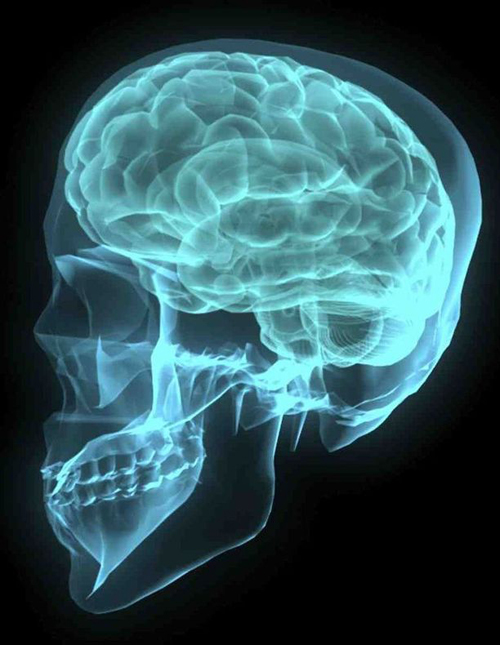The Brain's Response to Hallucinogens
Posted on May 27, 2020
Hallucinogens --LSD (acid), MDMA (an amphetamine called ecstasy), PCP (often called angel dust), and Diviners Mint.
Adapted from: Mind Over Matter Hallucinogens Series
National Institute on Drug Abuse · National Institutes of Health
Hallucinogens causes people to experience - you guessed it - hallucinations, imagined experiences that seem real. The word "hallucinate" comes from Latin words meaning, "To wander in the mind."
No wonder some people refer to hallucinating as tripping. The "trips" caused by hallucinogens can last for hours. Parts of these trips can feel really good, and other parts can feel really terrible.
Hallucinogens powerfully affect the brain, distorting the way our five senses work and changing our impressions of time and space. People who use these drugs a lot may have a hard time concentrating, communicating, or telling the difference between reality and illusion.
Where Do Hallucinogens Come From? Some hallucinogens can be found in plants. Mescaline comes from a cactus called peyote. And certain mushrooms, also known as magic mushrooms, are hallucinogens. Many hallucinogens are chemicals that don't occur in nature. Some examples are: LSD, also called acid; MDA, an amphetamine; MDMA, an amphetamine, called ecstasy; and PCP (phencyclidine) often called angel dust, embalming fluid, super grass, killer weed, and rocket fuel.
How Hallucinogens Affect Your Senses
Your brain controls all of your perceptions -- the way you see, hear, smell, taste, and feel. How does your brain communicate with the rest of your body? Chemical messengers transmit information from nerve cell to nerve cell in the body and the brain. Messages are constantly being sent back and forth with amazing speed.
Your nerve cells are called neurons, and their chemical messengers are called neurotransmitters. When neurotransmitters attach to special places on nerve cells (called receptors), they cause changes in the nerve cells.
This communication system can be disrupted by chemicals like hallucinogens, and the results are changes in the way you sense the world around you.
A Recent Discovery
MDMA and MDA cause neurons to release a neurotransmitter called serotonin. Serotonin is important to many types of nerve cells, including cells that receive sensory information and cells that control sleeping and emotions. The released serotonin can over activate serotonin receptors. In animals, MDMA and MDA have been shown to damage and destroy nerve fibers of neurons that contain serotonin. This can be a big problem, because serotonin neurons have a role in so many things, such as mood, sleep, and control of heart rate.
Scientists have recently found that the damaged serotonin neurons can regrow their fibers, but the fibers don't grow back normally. The fibers may regrow into brain areas where they don't normally grow, but not into other brain areas where they should be located. The new growth patterns may cause changes in mood, learning, or memory.
Actions of PCP in the Brain
PCP prevents the actions normally caused when a neurotransmitter, called glutamate, attaches to its receptor in the brain. It also disrupts the actions of other neurotransmitters. This drug's effects are very unpredictable. For example, it may make some people hallucinate and become aggressive, while others may become drowsy and passive. It is also addictive.
For printed copies of this publication contact:
National Clearinghouse for Alcohol and Drug Information
P.O. Box 2345
Rockville, MD 20847
1-800-729-6686
Mind Over Matter is produced by the National Institute on Drug Abuse, National Institutes of Health. These materials are in the public domain and may be reproduced without permission. Citation of the source is appreciated (NIH Publication No. 97-3858.)
Salvia divinorum is a Mexican hallucinogen that is also known as, lady salvia, pastora, salvia, herbal ecstasy, sierra mazateca, diviners sage, diviners mint, mexican mint, magic mint, hierba maria, la hembra, ska maria pastora, the shepardess, sage wisdom, or salvia cuttings. It contains the unique psychoactive ditrepene Salvinorin. It is one of the world’s rarest plants in the wild.
SEE ALSO:
More How Drugs and Alcohol Affect the Brain and Body
Sexual Bias Articles
Race Relations Articles
Mental Health Articles
WA. Counselor Directory: find a therapist near you
How helpful is this web page to you?
(and how can we can improve this page for you?)
not helpful
very helpful
Other Articles
The Brain's Response to Inhalants
Hair spray, gasoline, spray paint, butane gas, and others (huffer, huffing, sniffing)" Adapted from the Mind Over Matter Inhalant Series by the National Institute on Drug Abuse ·... read more
The Brain's Response to Methamphetamine
Adapted from: Mind Over Matter Methamphetamine Series National Institute on Drug Abuse · National Institutes of Health “Speed”, “meth”, “chalk”, &ld... read more
The Brain's Response to Stimulants
Stimulants --caffeine, cocaine, crack, amphetamines, methamphtamine (crank). Mind Over Matter Stimulants Series National Institute on Drug Abuse · National Institutes of Health... read more
When your friend is using cocaine
Note to the reader: This section begins with a letter from a friend who is concerned about abusing cocaine and is looking for help. In writing my response, I am trying to assist the individual and, at t... read more




